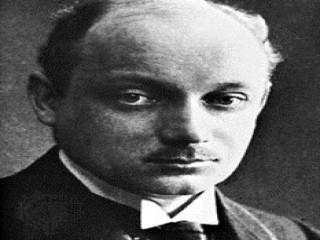
Georg Kaiser biography
Date of birth : 1878-11-25
Date of death : 1945-06-04
Birthplace : Magdeburg, Germany
Nationality : German
Category : Famous Figures
Last modified : 2011-05-26
Credited as : Playwright, New Man,
The German playwright Georg Kaiser was the most gifted and prolific dramatist of the expressionist school. Extremely skillful and inventive, he did more than any other writer, exGeorg Kaiser was born on Nov. 25, 1878, in Magdeburg, the son of a businessman. He himself entered business and worked from 1898 to 1901 in Buenos Aires. Then, during years of ill health and unemployment, he turned to writing plays—Rektor Kleist (1905) and Die judische Witwe (1911; The Jewish Widow) —but attained wide recognition only with Die Burger von Calais (1913; The Burghers of Calais). This play, ostensibly historical, dramatizes Jean Froissart's tale of the six Calais burghers who were to be surrendered to the English king so that he would spare the city. The play illustrates Kaiser's faith in the emergence of a "New Man," a truly altruistic human being. Kaiser is a great formalist, and The Burghers is a finely chiseled drama full of splendid diction—a series of carefully composed and patterned tableaux.
Von Morgens bis Mitternachts (1916; From Morn till Midnight), an equally famous play, depicts a sequence of stages in the evolution of a man, a bank cashier, through the course of a single day that he begins with a theft. The trilogy Die Koralle (1917; The Coral), Gas I (1918), and Gas II (1920) is perhaps Kaiser's greatest achievement. The Coral portrays the spiritual transformation of a billionaire who attempts to escape his conscience by exchanging his identity for that of his secretary and double, whom he kills. In Gas I Kaiser shifts the emphasis to society and its regeneration; the billionaire's son is destroyed by those very workers at the gas plant whom he would save from enslavement to machines. Gas II is a futuristic play in which the world appears totally mechanized and man is the permanent victim of machines and war.
In his many plays Kaiser returns again and again to the same themes: hostility to war, militarism, and industrialism; fear of dehumanization; yearning for spiritual regeneration. Later, such dramas as Rosamunde Floris (1937) stress the need for sacrifice and love. During the 1930s and 1940s Kaiser's work becomes even more intense and inward. Constantly innovative, he was experimenting at the end of his career with "Greek" plays in iambic verse (Zweimal Amphitryon, Pygmalion, and Bellerophon, published posthumously in 1948) that again assert the need for love and devotion to truth in a vicious world. Kaiser left Germany in 1938 and died in Ascona, Switzerland, in 1945.
















